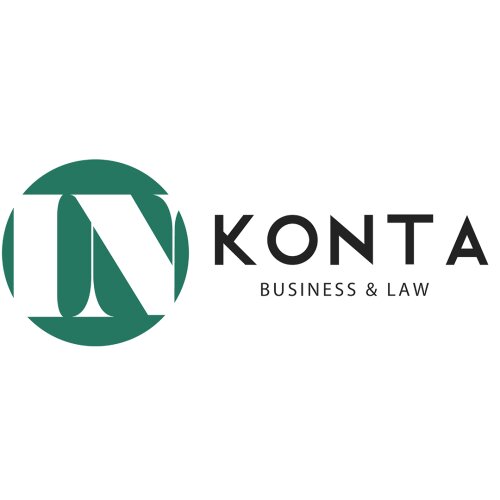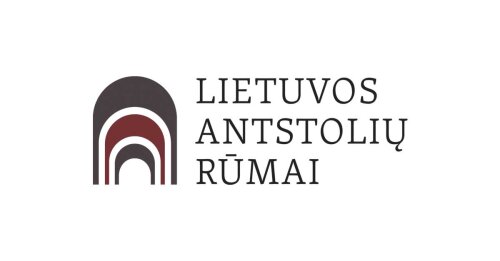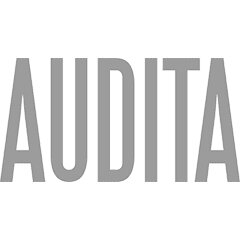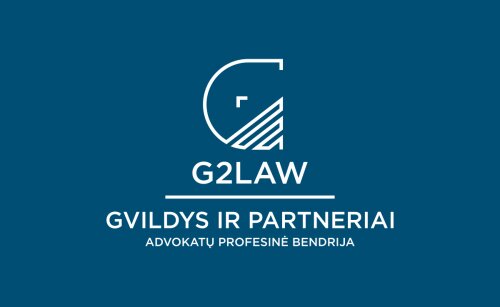Best Communications & Media Law Lawyers in Republic of Lithuania
Share your needs with us, get contacted by law firms.
Free. Takes 2 min.
Or refine your search by selecting a city:
List of the best lawyers in Republic of Lithuania

About Communications & Media Law in Republic of Lithuania:
Communications & Media Law in Republic of Lithuania covers regulations related to the media, telecommunications, freedom of speech, advertising, and data protection in the country. These laws aim to ensure the responsible and ethical use of media and communication channels while also protecting individuals' rights.
Why You May Need a Lawyer:
You may need a lawyer specializing in Communications & Media Law in Republic of Lithuania if you are facing issues such as defamation, copyright infringement, privacy violations, or disputes related to media content. Additionally, if you are a media organization or content creator, a lawyer can help you navigate the complex regulations in the field.
Local Laws Overview:
In Republic of Lithuania, Communications & Media Law is regulated by the Law on Provision of Information to the Public, the Law on Electronic Communications, the Law on Copyright and Related Rights, and the Law on Protection of Personal Data. These laws set out the requirements for media content, advertising, data protection, and telecommunications services in the country.
Frequently Asked Questions:
1. What are the key regulations governing media content in Republic of Lithuania?
The key regulations governing media content in Republic of Lithuania include the Law on Provision of Information to the Public and the Law on Copyright and Related Rights, which outline the requirements for media organizations in terms of content creation, distribution, and intellectual property rights.
2. How are defamation and privacy violations addressed in Republic of Lithuania?
Defamation and privacy violations are addressed through civil and criminal laws in Republic of Lithuania. Individuals can bring defamation cases to court, while privacy violations can result in fines or other penalties for the responsible party.
3. What are the restrictions on advertising in Republic of Lithuania?
Advertising in Republic of Lithuania is regulated by the Law on Provision of Information to the Public, which sets out requirements for truthful and non-misleading advertising. Certain products, such as tobacco and alcohol, are subject to additional restrictions on advertising.
4. How is personal data protected in Republic of Lithuania?
Personal data is protected in Republic of Lithuania by the Law on Protection of Personal Data, which is aligned with the General Data Protection Regulation (GDPR) of the European Union. This law sets out the requirements for collecting, processing, and storing personal data, as well as individuals' rights regarding their data.
5. Can journalists protect their sources in Republic of Lithuania?
Journalists in Republic of Lithuania have the right to protect their sources under the Law on Provision of Information to the Public. This right is crucial for ensuring freedom of the press and the ability to report on sensitive issues without fear of reprisal.
6. What are the penalties for violating Communications & Media Law in Republic of Lithuania?
Penalties for violating Communications & Media Law in Republic of Lithuania can vary depending on the nature of the violation. They may include fines, suspension of broadcasting licenses, or criminal charges in severe cases of defamation or privacy violations.
7. How can I file a complaint about a media organization or content in Republic of Lithuania?
If you have a complaint about a media organization or content in Republic of Lithuania, you can contact the State Data Protection Inspectorate or the Radio and Television Commission of Lithuania, which are the regulatory bodies overseeing media and communications in the country.
8. Are there restrictions on foreign ownership of media companies in Republic of Lithuania?
Foreign ownership of media companies in Republic of Lithuania is subject to certain restrictions to ensure the diversity and independence of the media landscape. Foreign investors may need to obtain approval from regulatory authorities before acquiring a stake in a media organization.
9. How can I protect my intellectual property in Republic of Lithuania?
You can protect your intellectual property in Republic of Lithuania by registering your copyright or trademark with the State Patent Bureau. Additionally, you can seek legal assistance from a lawyer specializing in intellectual property law to enforce your rights and prevent infringement.
10. Are there any restrictions on online content in Republic of Lithuania?
Online content in Republic of Lithuania is subject to the same regulations as traditional media content, including laws on defamation, privacy, copyright, and data protection. Content creators and online platforms must comply with these regulations to avoid legal consequences.
Additional Resources:
For more information on Communications & Media Law in Republic of Lithuania, you can visit the State Data Protection Inspectorate website and the Radio and Television Commission of Lithuania website. These governmental bodies provide guidance on legal requirements and regulations in the field.
Next Steps:
If you require legal assistance in Communications & Media Law in Republic of Lithuania, it is advisable to seek advice from a specialized lawyer with experience in the field. They can provide guidance on your rights and obligations under local laws and help you navigate any legal challenges you may face.
Lawzana helps you find the best lawyers and law firms in Republic of Lithuania through a curated and pre-screened list of qualified legal professionals. Our platform offers rankings and detailed profiles of attorneys and law firms, allowing you to compare based on practice areas, including Communications & Media Law, experience, and client feedback.
Each profile includes a description of the firm's areas of practice, client reviews, team members and partners, year of establishment, spoken languages, office locations, contact information, social media presence, and any published articles or resources. Most firms on our platform speak English and are experienced in both local and international legal matters.
Get a quote from top-rated law firms in Republic of Lithuania — quickly, securely, and without unnecessary hassle.
Disclaimer:
The information provided on this page is for general informational purposes only and does not constitute legal advice. While we strive to ensure the accuracy and relevance of the content, legal information may change over time, and interpretations of the law can vary. You should always consult with a qualified legal professional for advice specific to your situation.
We disclaim all liability for actions taken or not taken based on the content of this page. If you believe any information is incorrect or outdated, please contact us, and we will review and update it where appropriate.
Browse communications & media law law firms by city in Republic of Lithuania
Refine your search by selecting a city.














